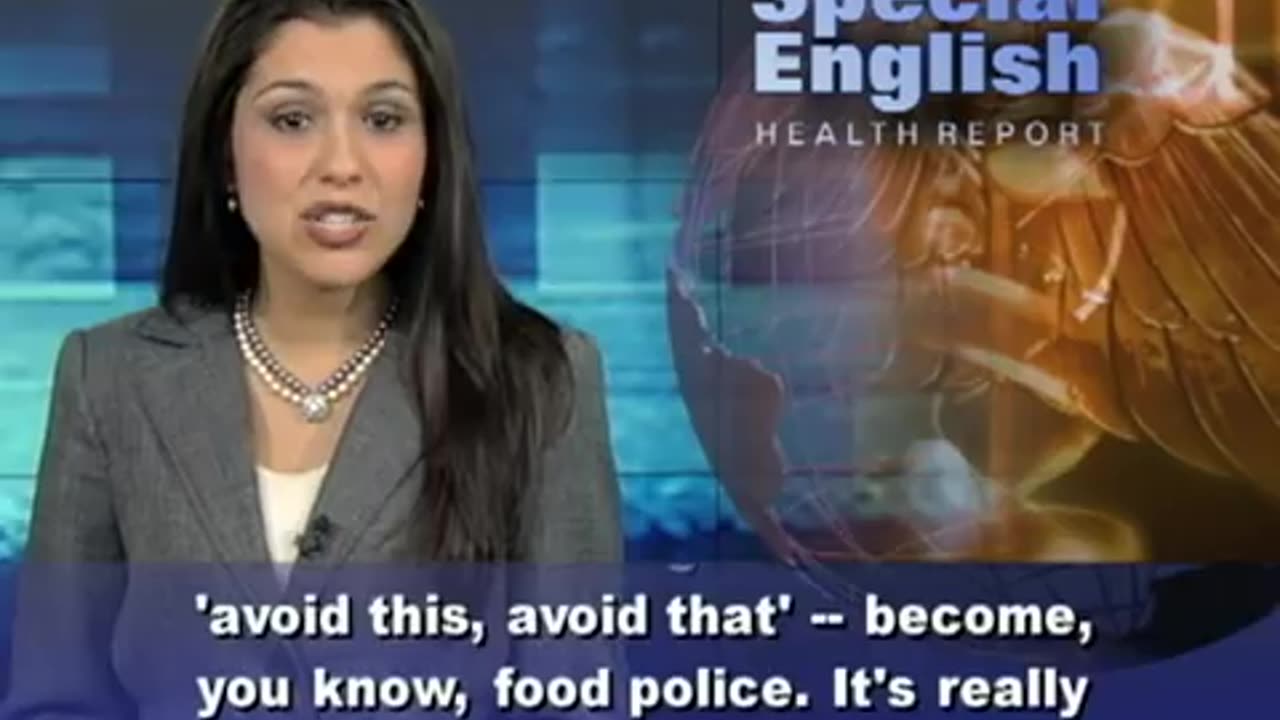Premium Only Content

Want to Lose Weight? Try Counting Calories
THANK YOU
VOA Learning English
@voalearningenglish
https://www.youtube.com/@voalearningenglish
How many calories we eat appears to be more important than what we eat when we eat too much. That was the finding of a new study that should be satisfying to anyone who counts calories for weight control.More than one billion adults are overweight. The World Health Organization calls obesity a global epidemic. Government researchers have just reported their latest estimates for the United States. The good news: obesity rates have not increased much in recent years. The bad news: they have not decreased either. More than one-third of adults were obese in two thousand nine and two thousand ten. Anyone who has ever tried to lose weight knows there are all kinds of conflicting diet plans. Some tell people not to eat carbohydrates. Others say not to eat fats. Still others say to eat more protein. Or to eat less protein. Dr. George Bray at the Pennington Biomedical Research Center in Louisiana led the new study. He wanted to know if protein affects weight gain. Twenty-five healthy adults were in the study. They were overfed by almost a thousand calories a day over an eight-week period. Calories in food are a measure of energy. The people followed diets with low, normal or high levels of protein. Normal was defined as fifteen percent of energy from protein. Dr. Bray says all of them gained weight: "Fat storage was exactly the same with all three levels of protein. It was the calories that they ate that affected the body fat that they stored." Those who ate a higher percentage of protein gained more lean body mass. Dr. Bray says the opposite happened on a low protein diet: "If your protein intake's low, you'll actually lose body mass even though you're eating an excess amount of calories."He tells his patients to weigh themselves regularly so they can know quickly if they gain weight. His study appeared in the Journal of the American Medical Association.Dr. Dariush Mozaffarian at the Harvard School of Public Health studies the relationship between diet and conditions like heart disease and diabetes. He says, "We don't need to go down a list of 'avoid this, avoid that' -- become, you know, food police. It's really actually mostly foods that should be increased. It's fruits, vegetables, whole grains, fish, vegetable oils and nuts." He says increasing these six foods by about one serving each day would reduce obesity and help slow the epidemic of obesity-related diseases.For VOA Special English, I'm Alex Villarreal.You can find a video about the study at voaspecialenglish.com.
-

SpartakusLIVE
4 hours agoTexas FARMBOY turned WZ PRO turned REDSEC HERO turned ARC LOOT GOBLIN
15.9K -
 24:13
24:13
Jasmin Laine
7 hours agoPoilievre Can’t Stop LAUGHING—Liberals IMPLODE After U.S. Ambassador Calls Them Out
75811 -
 LIVE
LIVE
Mally_Mouse
5 days ago🎮 Throwback Thursday! Let's Play: Kingdom Hearts 1 pt. 4
519 watching -
 25:14
25:14
Stephen Gardner
2 hours agoCLINTONS PANIC AS ARREST CALLS EXPLODE – Scott Jennings GOES OFF! 😱
2.83K4 -
 LIVE
LIVE
megimu32
1 hour agoON THE SUBJECT: Throwback Thursday | Wheel of Nostalgia Chaos!
201 watching -
 LIVE
LIVE
Flyover Conservatives
21 hours agoTrojan Horse in the Big Apple? Prophetic Warning w/ Robin D. Bullock | FOC Show
1,673 watching -
 LIVE
LIVE
Precision Rifle Network
1 day agoS5E6 Guns & Grub - The Boys Are Back!
62 watching -
 LIVE
LIVE
SynthTrax & DJ Cheezus Livestreams
4 days agoLumines - Arise - DJ Cheezus Birthday Stream
98 watching -
 1:00:41
1:00:41
Glenn Greenwald
6 hours agoEXCLUSIVE: Succession Actress & Podcast Host Dasha Nekrasova Speaks Out About Hollywood Cancellation Over Fuentes Interview | SYSTEM UPDATE #549
99.2K69 -
 31:27
31:27
Robbi On The Record
8 hours ago $1.20 earnedAstrology VS God: The Conversation Culture Has Been Avoiding | ft. JT Follows JC
9.95K5